ECE hosts first Grad School Workshop to showcase benefits of an advanced degree
The workshop attracted students from all over the country and demystified the ECE graduate school experience.
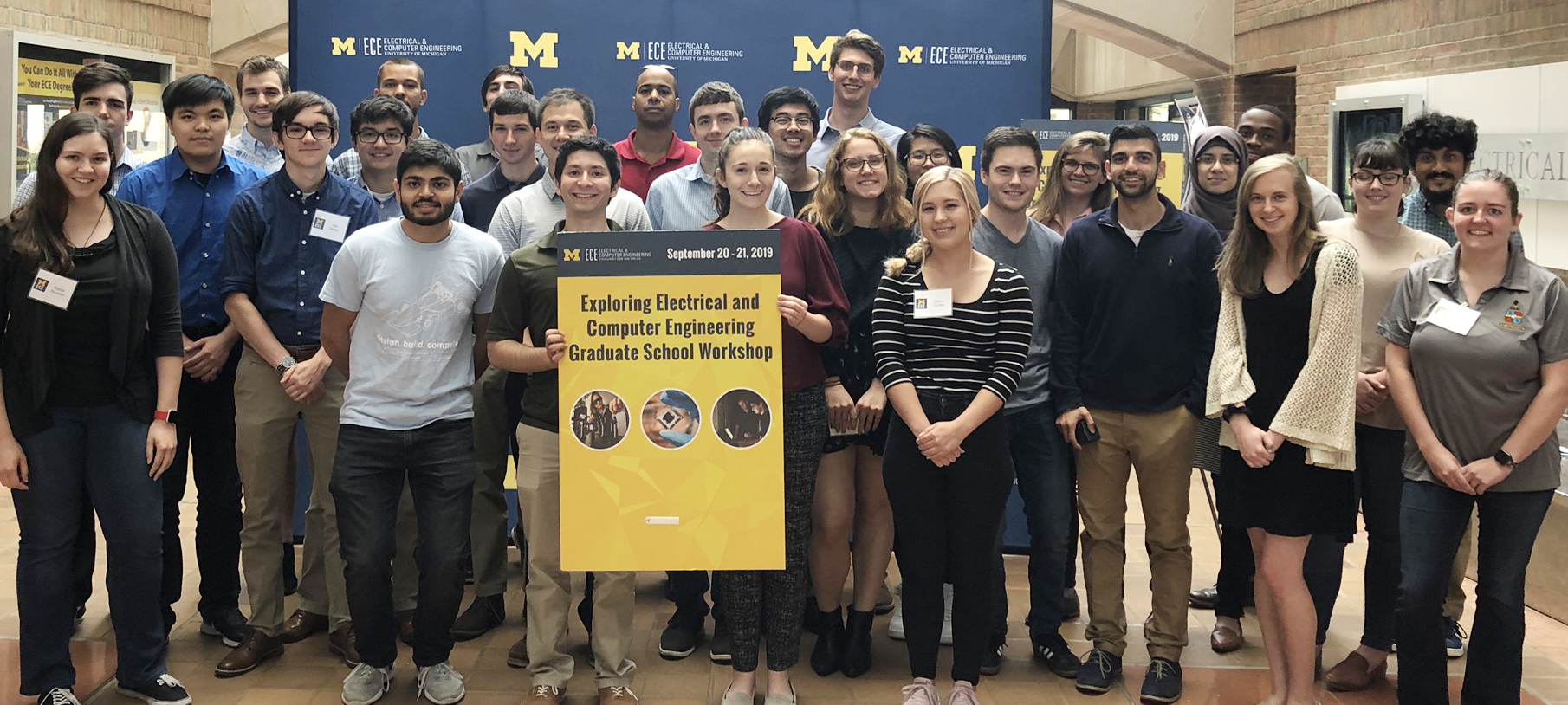
 Enlarge
Enlarge
ECE’s Exploring Electrical and Computer Engineering Graduate School Workshop attracted students from all over the country and celebrated the benefits of an advanced degree. The goal of the workshop was to enlighten students about the grad school experience while providing tools to help prospective students with the application process.
As technology advances, the additional training supplied in a graduate program becomes more and more crucial for career prospects. In recent years, the demand for workers with graduate degrees has increased. Electrical and computer engineers with graduate degrees can make as much as $30,000 more for starting salary, and anyone who wishes to do research will find that a PhD is a basic prerequisite.
However, there are many misconceptions about graduate school that discourage people from pursuing an advanced degree. At the workshop, attendees got to interact directly with faculty and current students to learn about funding, student life, and trends in research.
“I was chatting with one attendee who said he’d heard that embedded systems isn’t a preferred area right now, and I told him no, that’s false,” said Prof. Heath Hofmann, who helped organize the event. “Embedded systems is a very promising area in high demand. So that’s really what this event is about – dealing with all the misinformation out there and clarifying things.”
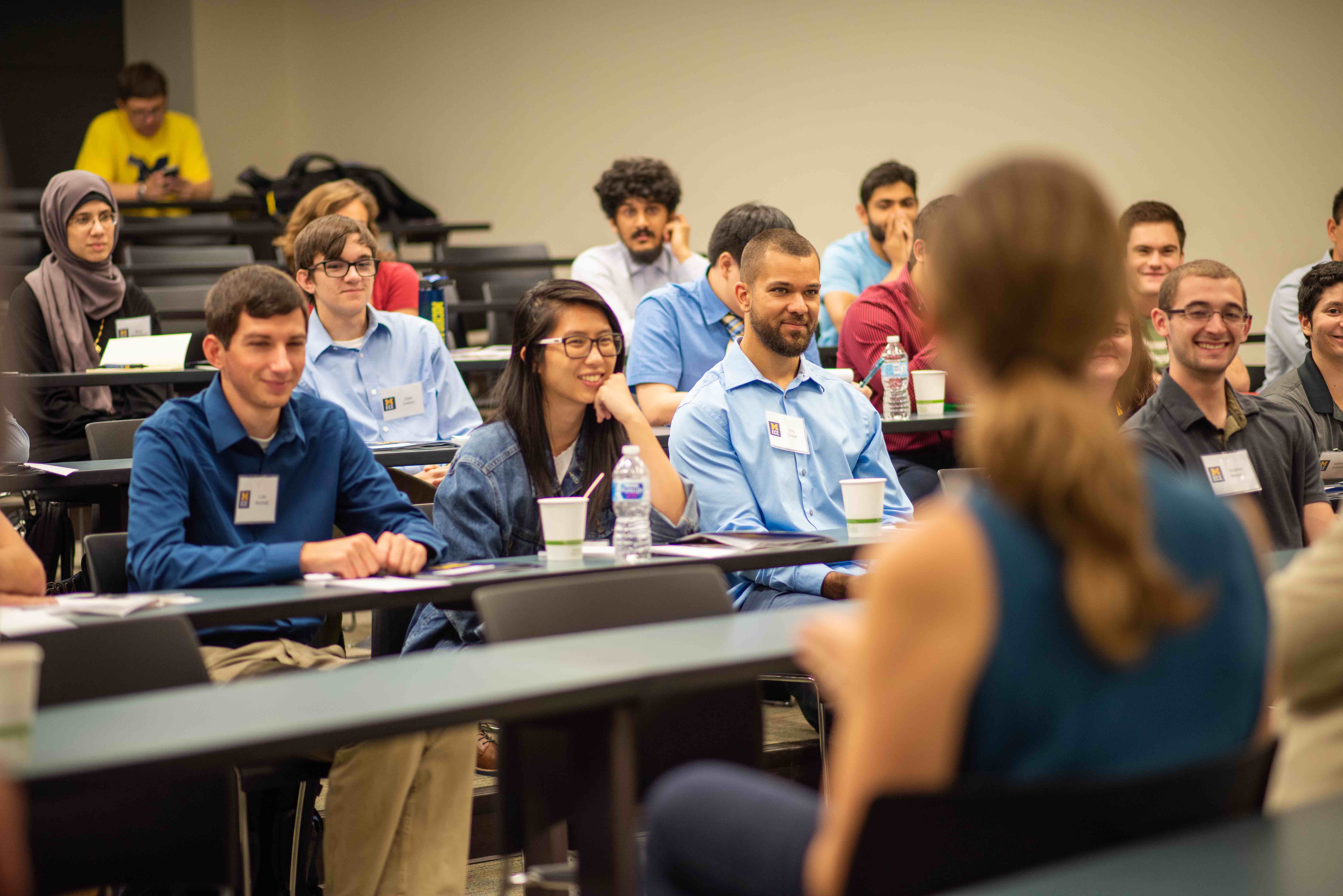
 Enlarge
Enlarge
Corey Scutt, a senior at Central Michigan University who’s interested in photonics and plasma-nuclear engineering, had planned on entering industry after his bachelor’s until an internship changed his mind. For him, the workshop was particularly valuable for helping clarify the graduate school process.
“It’s helped immensely and made the task of applying to a school seem significantly less daunting,” he said. “I’ve really gotten to know the advantages of coming to grad school, and it really solidified that this is the right choice for me.”
One of the most common misperceptions is that grad students work 24/7 and don’t have a social life. The workshop addressed ECE culture and the resources available to students to ensure they feel taken care of and know where to go for help when they need it. Current students talked about work-life balance, and how grad school doesn’t have to be a one-track road to burnout city.
“My time in grad school was one of the best times of my life,” Hofmann said. “You’re getting to work on research, but you get to go out and hang out with your colleagues. It’s a pretty amazing experience, and we wanted to emphasize the freedom and the fun you can have.”
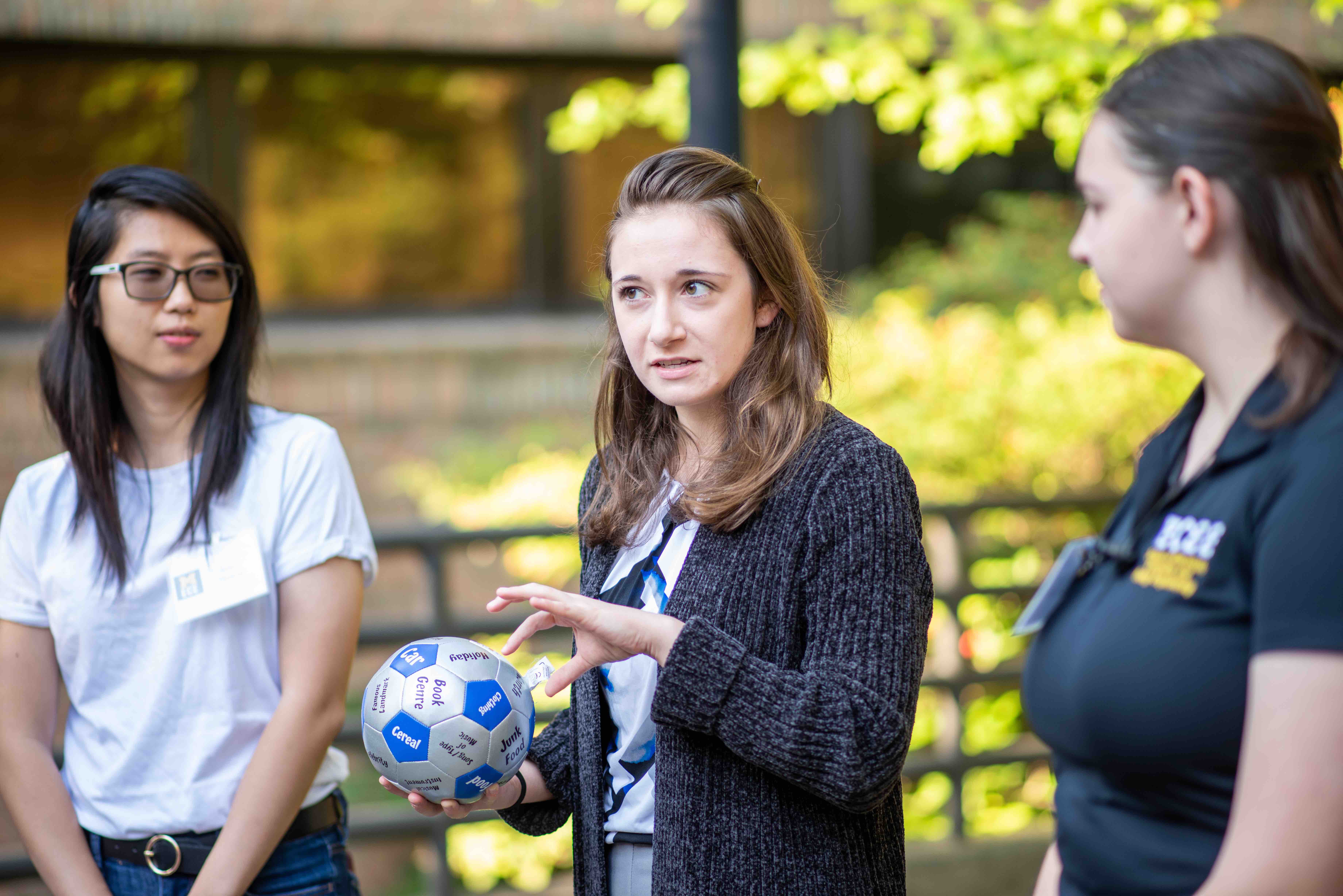
 Enlarge
Enlarge
There were nearly 40 attendees for the workshop. Activities included sessions on the application process, a lunch with current faculty members, as well as opportunities for attendees to meet with faculty one-on-one to receive feedback. Attendees also toured several labs, got to explore parts of Ann Arbor, and had dinner with current students.
Prerit Oberai, a master’s student at the University of Colorado Boulder who’s interested in computer networks and distributed systems, said that the workshop convinced him that a PhD is a worthwhile pursuit, and he really appreciated getting to talk to the faculty directly. Often, it can be intimidating to approach prestigious and accomplished faculty, so the workshop helped attendees feel more comfortable making individual connections to professors.
“When they talk to you in person, you realize that they’re human,” Oberai said. “You can relate to them easier, and that’s really helpful.
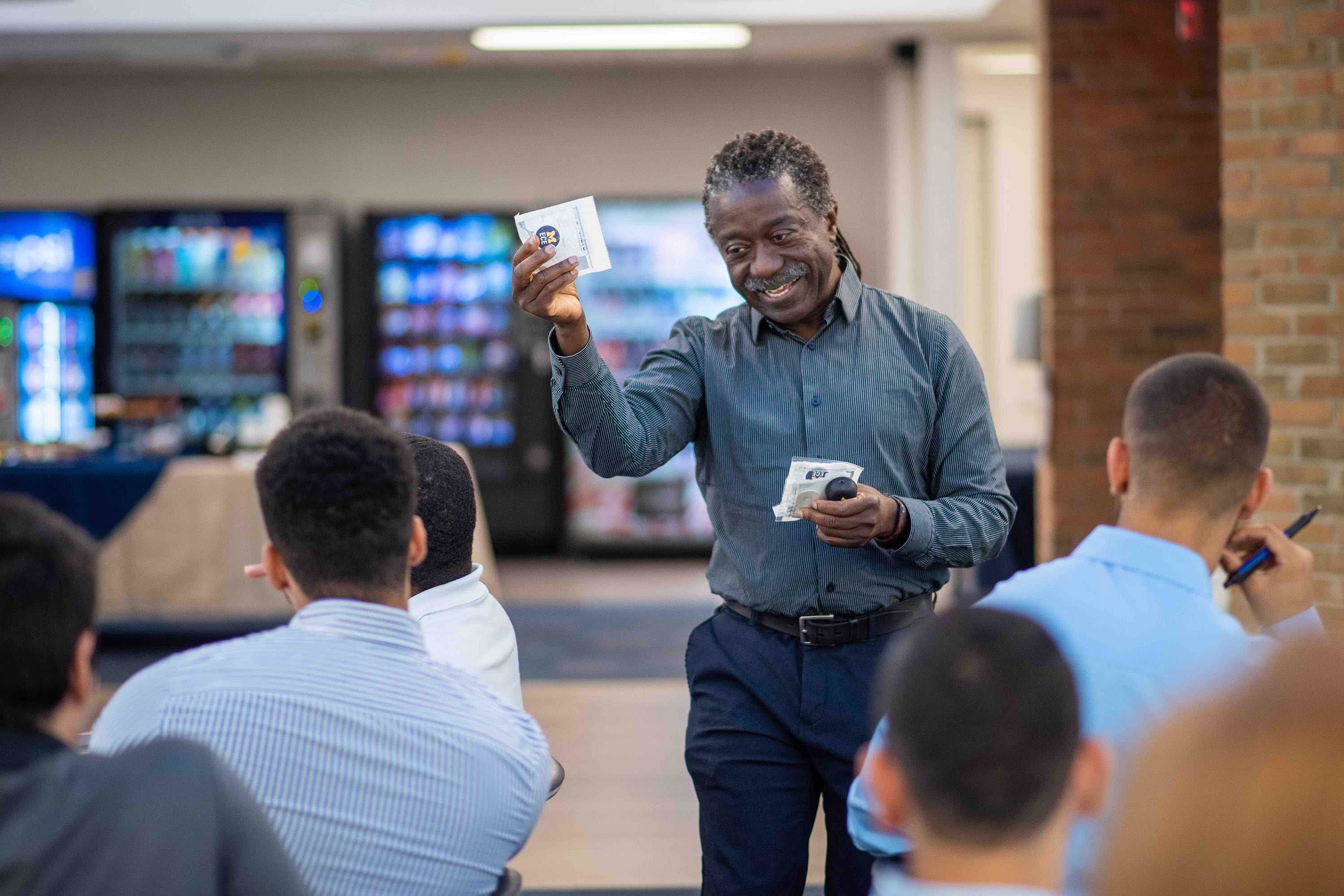
 Enlarge
Enlarge
For Marcella Gatti, a senior at Wayne State University who’s interested in nanotechnology as well as optics and photonics, the faculty panel also provided insight important for understanding the graduate experience.
“They talked about their expectations of their current grad students, and I think that was very helpful because it was preparing us for what it’s like to be an actual student, beyond the application process,” she said. “It’s given us a unique inside look at a university, and that’s really special.”
While the workshop facilitated networking between attendees and U-M, Hofmann and John Feldkamp, ECE Student Recruiter and main organizer of the event, said the end goal wasn’t just to recruit students to U-M.
“Being that the University of Michigan is top 10 program in ECE, we already receive a lot of competitive applications,” Feldkamp said. “This workshop is a way that we can help promote graduate school in ECE while also increasing the number of competitive applicants for our graduate program and in the field in general.”
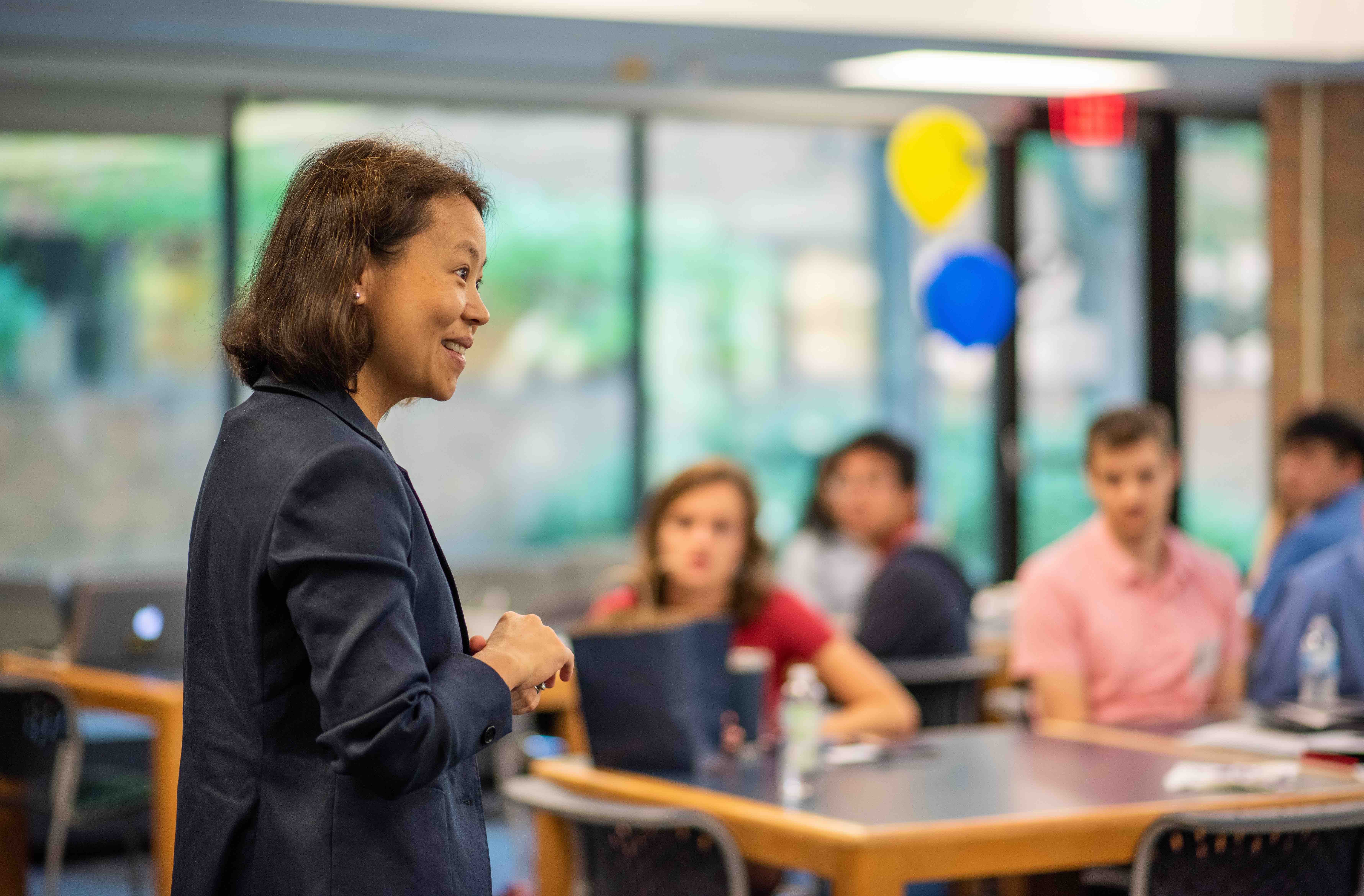
 Enlarge
Enlarge
The number of domestic applicants for grad programs has declined over recent years, and Hofmann says he hopes programs like this can help encourage more domestic students to take advantage of the strong programs in the U.S.
“Obviously, we’re pitching the University of Michigan, but as long as they go to grad school somewhere, we consider that a success,” Hofmann said.
 MENU
MENU 
